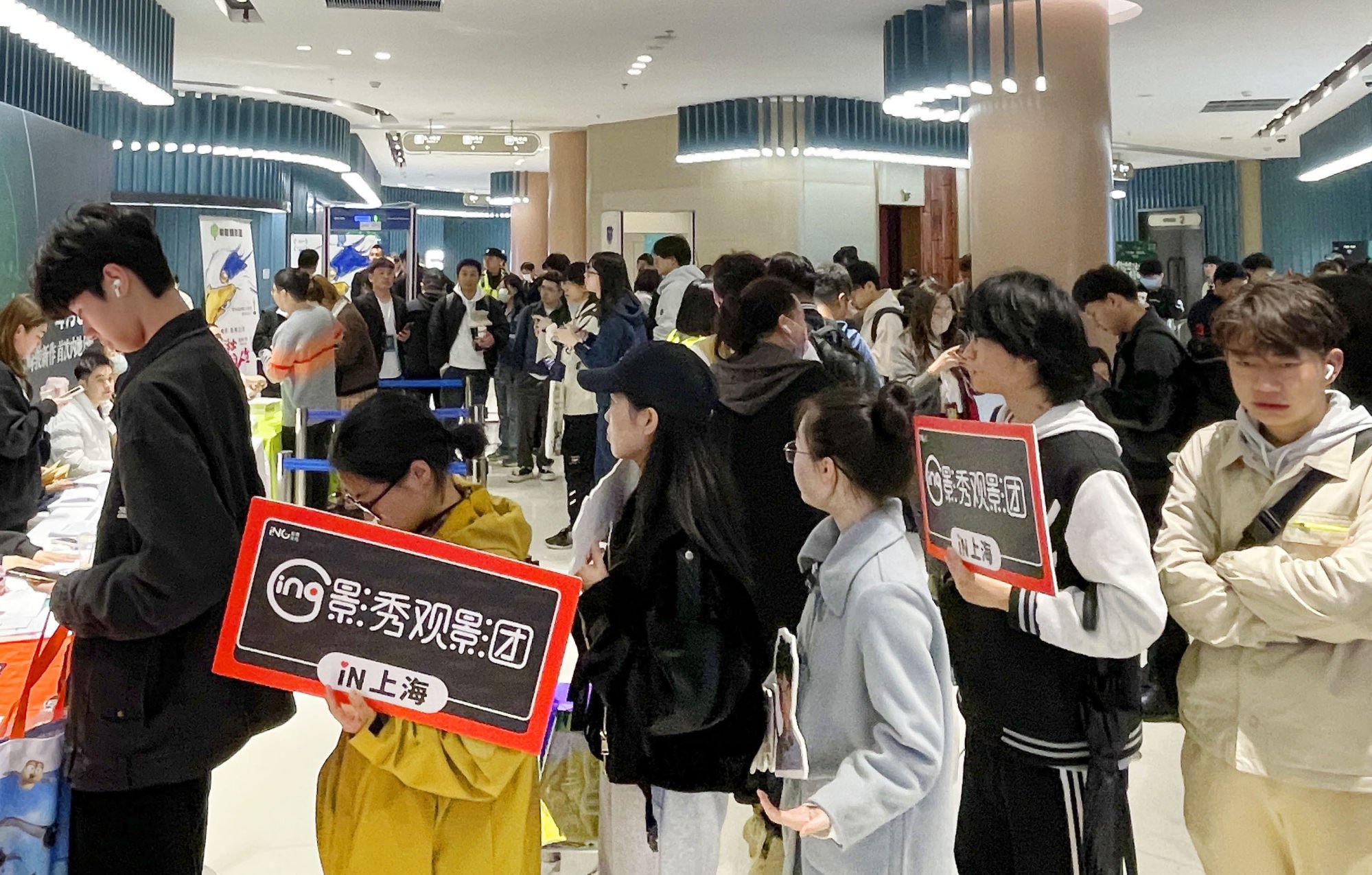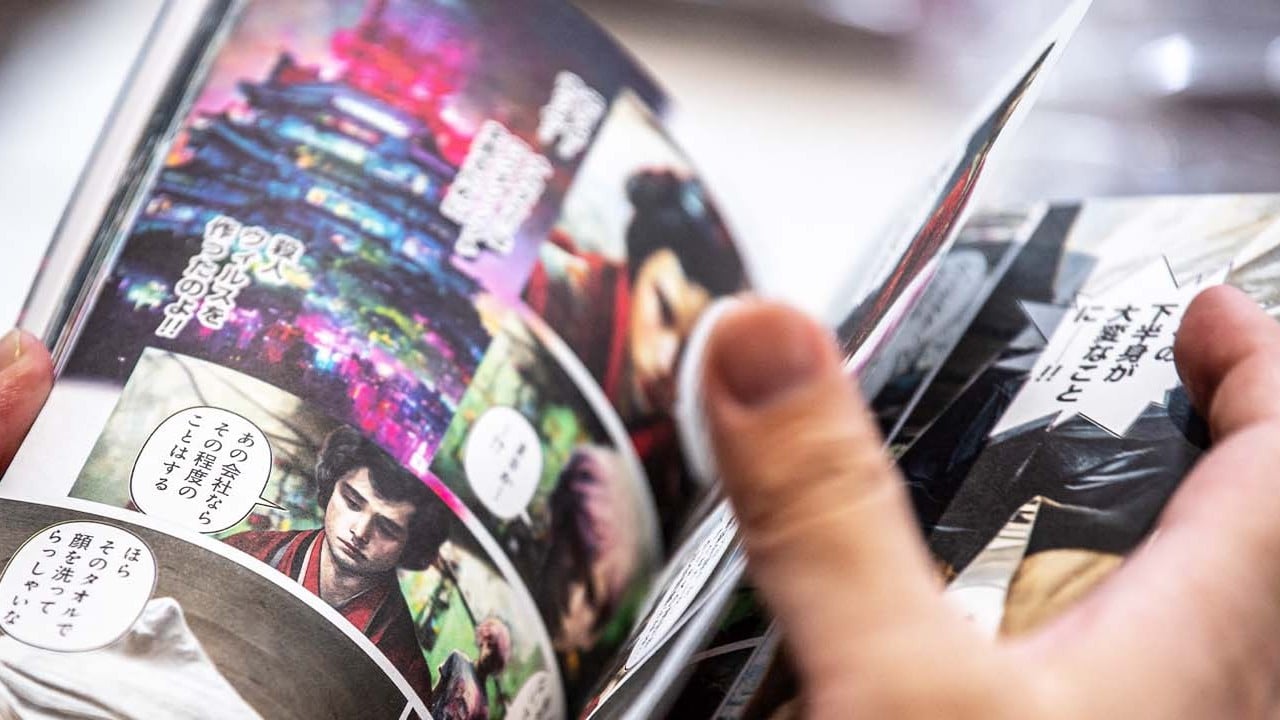
Chinese nationalists take aim at Japanese animation master Miyazaki’s WWII film
- Hayao Miyazaki’s The Boy and the Heron is a box office success in China, but some say the Studio Ghibli co-founder’s anti-war stance is ‘hypocritical’
- Analysts say the criticism is a reflection of deteriorating Sino-Japanese ties and the film’s heavy symbolism leaves it open to interpretation
The movie features the surreal adventure of a Japanese boy during World War II as he is torn between the sorrow of losing his mother in an air strike on Tokyo and a sense of guilt from his father’s contribution to the war as a fighter jet parts manufacturer.
The mixed responses came despite Miyazaki’s well-known anti-war stance in Japan, where he made headlines in 2015 for urging his country’s leaders “to say clearly that aggressive war was completely wrong, having brought enormous damage to the Chinese people”.

Some Chinese nationalists have argued that Miyazaki’s anti-war stance is hypocritical as his latest film portrays Japanese characters in a sympathetic light and as victims of the war.
Deep trouble: China’s nationalists, boiling mad, put drinks firm in hot water
Sheng Zou, an interdisciplinary media scholar at Hong Kong Baptist University, said Miyazaki’s latest work received criticism in China in part because it contained a lot of abstract symbols “open to many different kinds of interpretations”.
“[The film] gives you different ways to read the plot and to read different characters. So I would say it’s sometimes contradictory, sometimes inconsistent, that’s also why people feel confused.”
Zou said that ambiguity was challenging for viewers, “especially if they are not very familiar with Miyazaki’s own personal life history, his own childhood, his family” and the historical background.
He added that nationalistic sentiment might have contributed to criticism about the movie’s stance on the war.
“When it comes to [the movie’s attitude towards the war], I think you could easily imagine there is going to be some kind of nationalist sentiment involved. But I think there are other kinds of viewpoints that are broader than just expression of nationalism.”
Chinese state media say Netflix’s 3 Body Problem pushes US ‘cultural hegemony’
The film was a box office hit in China, earning 693 million yuan (US$95.7 million) as of Friday, making it Miyazaki’s bestselling work in the country. The film took 46 per cent of the total box office earnings during the three-day Ching Ming Festival holiday earlier this month.
However, on Douban, the country’s best-known film review site, it scored 7.7 out of 10 – lower than Miyazaki’s earlier works, which have scores of 8 or 9.
Many criticisms have centred on the metaphors used in the film, with some accusing Miyazaki of being “hypocritical” and “vague” about his anti-war stance.
“The movie shamelessly packages Japan as a victim of war, and stops short of talking about why Tokyo was bombed … The film adds all kinds of metaphors, but they lack sincerity on truly reflecting on the war,” one film blogger wrote on social media platform Weibo.
Another influencer with more than 5.3 million Weibo followers acknowledged Miyazaki’s anti-war stance but also said “his view on history has limits”.
“Yes, the Japanese people also suffered a lot, but that’s because they lost the war. What if they had won?” he wrote.
“If you want to talk about suffering, other countries that were invaded by Japan suffered much more. And after all, it was still the choice of the people at the time who supported Japanese fascism and militarism that came to power.”
Narrative war: China’s TikTok users are being told that Aristotle did not exist
But many Chinese viewers praised Miyazaki’s visuals and storytelling and recognised the complexity of the filmmaker’s reflections on the war.
“The visual language of Miyazaki’s work is rich, cohesive, and sincere,” one Douban reviewer wrote, rating the film highly.
“Why did his country become so crazy, greedy, and dangerous in the second world war? Miyazaki feels the pain but he can’t simply hate his country … The film, using many metaphors, takes away a lot of clarity from the storytelling, but the director’s own very personal and even incompletely digested emotions are ultimately difficult to articulate,” the review said.
A mainland-based political scientist, who requested anonymity because of the sensitivity of the topic, said that over the past decade, some criticisms of Japan had become more extreme as part of a revival of populism and ultra-leftist views in the country.
“If it was 10 or 20 years ago, no one would judge or criticise Miyazaki’s works with the angle [that we see today],” the scholar said, adding that “the public understands that he is not defending militarism”.
“But now we see some with ultranationalist and leftist views judge works of art, and it is sometimes extreme, especially in recent years,” the scholar said.
According to the scholar, these more extreme views are related to Beijing’s tightly controlled historical narratives, which oppose anything that does not toe the official line or support national rejuvenation.
The scholar warned that the harsh stance adopted by Beijing could “hurt objective presentation of history” and reinforce nationalist sentiment.
The scholar noted that this trend paralleled the tensions in Sino-Japanese ties, including China’s “intense opposition” to Japan’s Fukushima water release and its criticism of closer ties between Tokyo and Washington.
“The sharp criticism is obviously a signal to civil society … and such an attitude has quite an influence on those radical voices,” the scholar said.
Some viewers have called for more nuance in assessing Miyazaki’s works. In a review published on WeChat that has earned around 100,000 views, the author argued that Miyazaki’s film was critical of Japan’s role in the war.
“At the end of the film, [the protagonist’s action] shows that Miyazaki is criticising the ruling power’s control over ideology and the military as well as their greed. He’s not targeting the people,” the article said.
Cao Xuenan, assistant professor of cultural studies at the Chinese University of Hong Kong, said the film was “very easy to interpret in whichever direction one wants” because it relied so heavily on symbolism.
“Any interpretation of a very open text shows us much more about the mindset of the interpreter, instead of the director’s intention,” Cao said.
Although Miyazaki’s earlier works also touched on complex themes, they had not been the target of Chinese nationalist critique “because there is not much room for such interpretation”, she said.

.JPG?itok=zUDwoZRB&v=1701240446)
